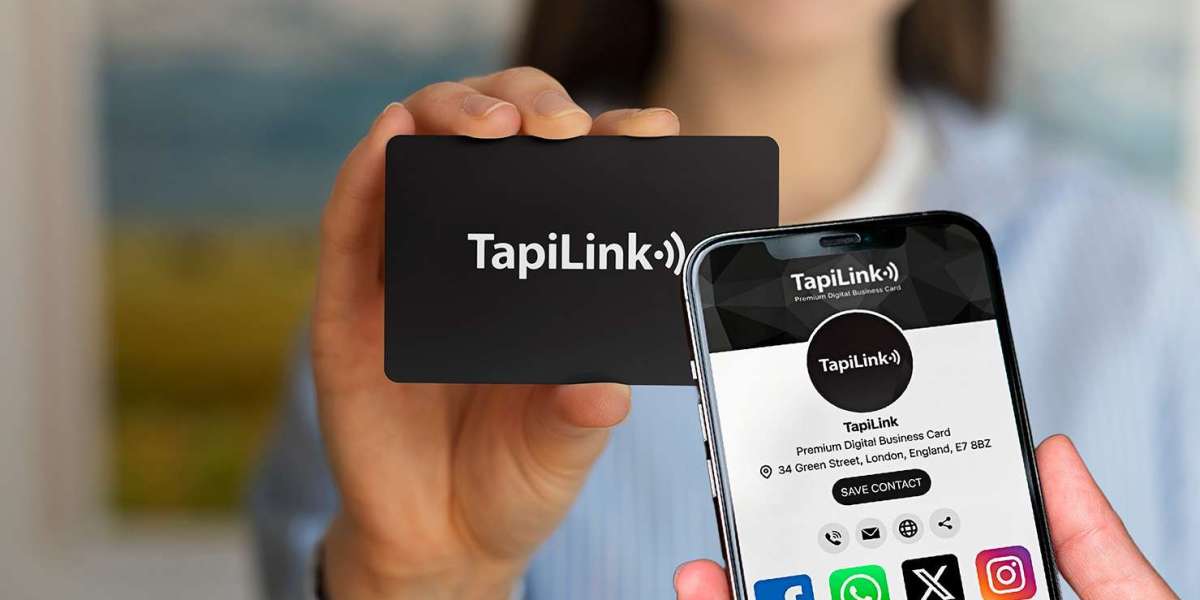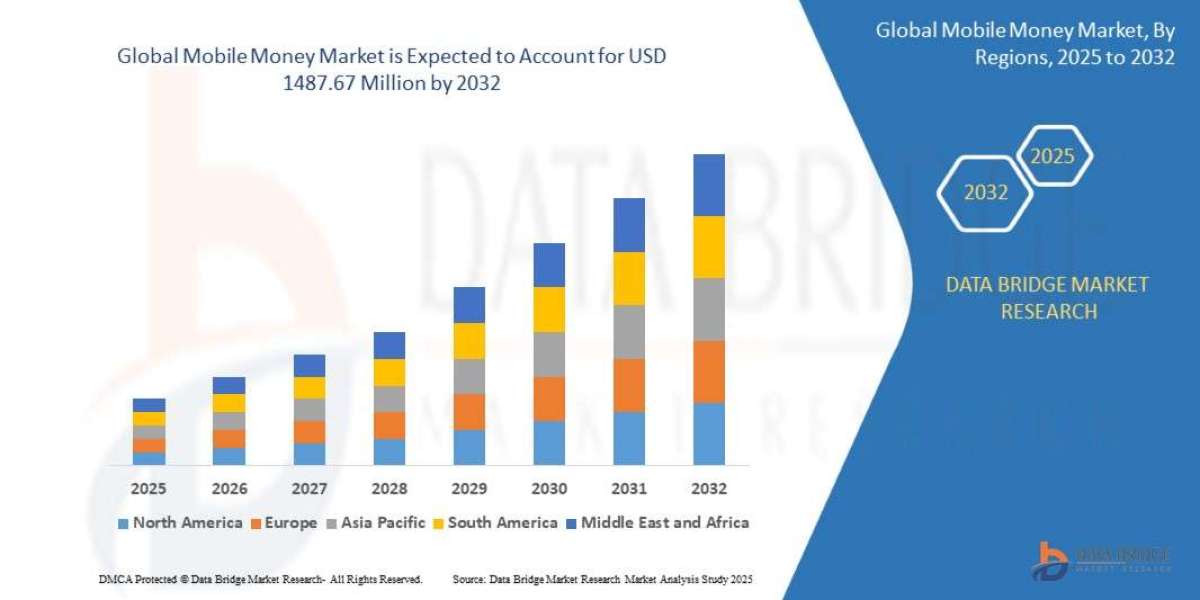In a world increasingly driven by technology, the traditional paper business card is quickly becoming a relic of the past. Enter the digital business card—a sleek, interactive, and eco-friendly alternative that’s transforming the way professionals in the UK and beyond connect. Whether you're a freelancer, a business owner, or a corporate executive, switching to digital business cards isn't just trendy—it's smart. In this guide, we’ll walk you through everything from how they work to which providers are worth your money in the UK market.
Introduction to Digital Business Cards
What Is a Digital Business Card?
A digital business card is essentially your professional identity condensed into a digital format. Think of it as your online handshake. It contains all the usual information—your name, title, company, phone number, email, website, and social media links—but presented in a format that can be easily shared through a link, QR code, or NFC tap.
Instead of handing out a piece of cardstock, you can now share your contact details in seconds via your smartphone or smartwatch. These cards are stored online, which means they’re always accessible and can be updated in real-time. Plus, they can incorporate multimedia like photos, videos, and clickable links—something no paper card can do.
Why Digital Business Cards Are Replacing Paper Cards
Let’s be honest—how many paper business cards do you keep? Most end up in a drawer or the bin. Digital cards solve that problem. They’re not only more convenient but also far more effective. Here’s why they’re replacing the traditional ones:
- No more printing costs: Say goodbye to reprinting every time you change your number or job title.
- Always updated: Change your job, email, or address? Just edit the card once—it’s updated for everyone.
- Contactless sharing: Perfect for the post-pandemic world where touchless is preferred.
- Eco-conscious: No trees harmed, no waste produced.
Advantages of Digital Business Cards in the UK
Environmentally Friendly Networking
Going digital isn’t just smart—it’s sustainable. In the UK, where environmental awareness is growing rapidly, professionals are looking for greener alternatives. Paper business cards, though small, contribute to a surprisingly high amount of waste. In fact, studies suggest that 88% of paper business cards are thrown away within a week. That’s a huge environmental footprint.
Digital business cards, on the other hand, are waste-free and renewable. You only need to create them once, and they can be reused endlessly. Plus, there’s zero ink, paper, or fuel involved in their "delivery." If you’re trying to align your personal brand with eco-conscious values, this is a simple and effective step in the right direction.
Click here more details: Digital Business Card Uk
Real-Time Updates and Smart Integration
Imagine sending out 100 business cards only to realize your phone number changed the next week. With digital business cards, updates are seamless. Change your details in the dashboard, and everyone who has your card gets the updated version instantly.
Integration is another game-changer. Most digital business card platforms in the UK now support:
- CRM Syncing: Automatically add contacts to your CRM.
- Calendar Links: Let people book meetings directly from your card.
- Social Media Connects: One-click follow buttons.
- Payment Gateways: Include PayPal or Stripe links if you're a freelancer or consultant.
This transforms your business card from a static piece of paper into a dynamic tool for conversions and engagement.
Key Features of a High-Quality Digital Business Card
Customizable Designs and Templates
First impressions matter, even in the digital space. A good platform will offer a variety of templates, allowing you to design your card to match your brand. Fonts, colors, logos, and layouts should all be customizable.
Some platforms even allow for personal branding elements like profile pictures, cover photos, and taglines. Whether you’re going for minimalist chic or vibrant and bold, your digital business card should reflect who you are and what you do. A well-designed card can boost trust and credibility, especially if you’re in a design-forward field like marketing or fashion.
QR Code Integration and Contactless Sharing
A major feature that sets digital cards apart is the ease of sharing. QR codes are now everywhere—from restaurants to retail—and digital business cards use them brilliantly. Just generate a unique QR code linked to your card, and people can scan it using their phone to instantly access your details.
This is particularly useful at networking events or trade shows where speed and efficiency are key. Plus, QR codes can be printed on everything from badges to merchandise, giving your card a wider reach.
And let’s not forget NFC cards—a tap-and-go option we’ll explore later in the article.
Multimedia Embeds – Video, Social, and More
Why stop at text? Digital business cards allow you to embed:
- Introductory videos about your services or company.
- Portfolio links for creatives like designers or writers.
- Social proof, such as testimonials or case studies.
- Clickable social media icons for instant connection.
This interactive content does more than impress—it builds credibility and showcases your brand’s full story in one compact space.
Popular Digital Business Card Providers in the UK
Top Platforms Offering UK-Based Services
There are dozens of platforms globally, but only a handful truly cater to the UK market. Here are a few that stand out:
- Blinq – Sleek interface, great integrations, and UK support.
- Popl – NFC-based and perfect for modern professionals.
- HiHello – Offers excellent free and premium plans with UK-friendly features.
- Tappy – UK-focused and specializes in smart cards with QR and NFC functionality.
- V1CE – A luxury digital business card made from metal or wood, and very popular in UK fintech and corporate circles.
Each of these providers allows you to create cards in minutes and often comes with apps for both Android and iOS.
Pricing Comparison and Value for Money
Here’s a basic pricing comparison:
Platform | Free Plan | Paid Plan (Monthly) | Notable Features |
Blinq | Yes | £2.99 | Custom branding, analytics |
Popl | Yes | £6.99 | CRM sync, NFC support |
HiHello | Yes | £4.99 | Multiple cards, calendar links |
Tappy | No | £9.99 | NFC cards, UK-based support |
V1CE | No | One-time cost (£39.99) | Premium materials, physical + digital |
Choosing the right one depends on your budget, branding needs, and desired features.
How to Create a Digital Business Card in the UK
Step-by-Step Creation Guide
Ready to make your own? It’s easier than you think. Here's a quick walkthrough:
- Choose a platform – Pick from Blinq, HiHello, or others mentioned above.
- Sign up – Use your email or social login.
- Pick a template – Choose a design that fits your personal or brand aesthetic.
- Add your details – Name, role, company, contact info, social links.
- Embed media – Add video intros, portfolio links, or testimonials.
- Generate your card – Create a QR code, NFC link, or shareable URL.
- Test it out – Try sharing it with a friend or colleague to ensure everything works smoothly.
Most platforms also offer tutorials or onboarding guides to walk you through each step.
Use Cases Across Different Industries
Freelancers and Creatives
Freelancers and creative professionals are among the top adopters of digital business cards in the UK. Why? Because when you're selling your personal brand, every touchpoint counts. A beautifully designed, interactive digital card helps you showcase your skills, personality, and professionalism in one go.
Let’s say you’re a freelance photographer or graphic designer. Instead of handing someone a bland paper card, you can give them a QR code that opens to your online portfolio, a video montage of your best work, or even client testimonials. This is powerful storytelling, and it sets you apart from the competition instantly.
Plus, many digital card platforms allow you to track who’s viewed your card, which gives freelancers useful insights into potential clients’ interest levels. You can also link to payment platforms like PayPal or Stripe, making it easy to seal the deal after a pitch or meeting.
Corporate Professionals and Executives
Corporate professionals, especially in tech, finance, and legal sectors, benefit immensely from digital business cards. In the UK’s fast-paced corporate environment, networking is crucial, and a smart card solution offers a competitive edge.
Executives can use digital cards to share:
- LinkedIn profiles
- Calendly links for easy scheduling
- PDF brochures or presentations
- Company social media handles
- Custom videos from the CEO
This level of professionalism and convenience isn’t just impressive—it’s effective. Plus, updates are instantaneous, which is a big deal in roles that involve regular travel or organizational changes. UK-based firms are also turning to digital cards as a way to standardize branding across their teams.
Small Business Owners and Entrepreneurs
Running a small business in the UK is no small feat. Entrepreneurs juggle branding, marketing, networking, and sales—all at once. Digital business cards help streamline a piece of that puzzle. You can carry your brand in your pocket and share it instantly.
Let’s say you run a boutique café in London. You can design a card that links to your Instagram feed, TripAdvisor reviews, and a digital loyalty card system. Or maybe you’re an e-commerce seller on Etsy or Shopify. Your card could direct users to your product catalog or an exclusive discount page.
Even better, you can create different versions of your digital card depending on the audience—vendors, customers, investors—each with tailored messaging and links.
Best Practices for Sharing Digital Business Cards
When and How to Share
Sharing a digital business card is all about timing and strategy. Unlike paper cards that require a physical exchange, digital cards can be shared instantly, and sometimes even proactively.
Here’s when and how to make the most impact:
- During Networking Events: Display your QR code on your phone or badge. A quick scan is all it takes.
- In Emails: Add your card link in your signature. Every email becomes a branding opportunity.
- On Social Media: Post your digital card on LinkedIn or Twitter to attract professional connections.
- Via Text Message: If you’ve just met someone, a quick “Here’s my card!” text makes a great impression.
- In Zoom/Teams Meetings: Drop the link in the chat before the call ends. This way, no one forgets who you are.
The key is to share it naturally and confidently. Treat it like an extension of your personality and brand.
Incorporating in Email Signatures and Websites
Email signatures are underrated real estate. You probably send dozens of emails a day—each one a chance to impress. Adding a sleek “View My Digital Business Card” link makes every email more professional and functional.
Here’s a tip: Use a clickable image or button with your logo that links to your card. It draws attention and increases click-through rates.
Your website is another goldmine for digital card placement. Add your card link to:
- The contact page
- Footer section
- Pop-up CTAs
- Blog author bios
This provides visitors with instant access to your full contact and social info, eliminating friction and boosting conversions.
Security and Privacy Considerations
How Secure Are Digital Business Cards?
Security is a top concern for UK professionals, especially with GDPR regulations in place. Digital business cards are generally secure, but it depends on the platform you choose.
Look for features like:
- Encrypted data storage
- Two-factor authentication
- Admin controls for enterprise teams
- Private sharing options
Most reputable providers use HTTPS protocols, meaning data is encrypted during transmission. This helps protect both your information and that of your contacts.
You can also password-protect your card, set it to expire, or restrict access by email domain—perfect for sending sensitive details to trusted parties only.
Data Protection Compliance in the UK
Under the General Data Protection Regulation (GDPR), any digital tool handling personal data must be transparent about what it collects, why, and how it stores the information. UK professionals need to ensure the platforms they use are fully GDPR-compliant.
Key points to check:
- User consent: Does the app ask before storing or sharing contact data?
- Data rights: Can users delete or export their data easily?
- Clear privacy policies: Are terms and conditions written in plain English?
If you’re creating cards for employees, make sure your HR or legal team vets the provider. GDPR violations can lead to serious penalties, and data breaches can damage your brand reputation.
Digital Business Cards and Networking Events
Enhancing First Impressions Digitally
First impressions last, and in a networking event filled with hundreds of professionals, you’ve got seconds to stand out. Digital business cards give you that edge.
Here’s how they work like a charm:
- Visual appeal: You can show off your personality with designs, colors, and even videos.
- Interactive features: Include buttons that let people connect with you on LinkedIn or schedule a meeting.
- Fast delivery: No fumbling for paper—just a tap or scan, and boom, you’re in their contacts.
Bonus tip? Create a custom landing page for your card that reflects the event’s theme or audience. For example, if you’re attending a marketing expo in Manchester, tweak your card to include case studies or offers related to digital marketing.
Integrating with Virtual and Physical Events
With hybrid events becoming the norm across the UK, digital business cards shine like never before. At virtual expos, you can embed your card in your speaker bio or event platform profile. Attendees can connect with you without needing to exchange emails.
At physical events, display a scannable QR code on:
- Event badges
- Booth banners
- Name tags
- Tabletop displays
Some advanced platforms even offer event-specific analytics, so you can see how many times your card was scanned, from where, and by whom.
And here’s a pro move: if you're a speaker, include your card link in your presentation slides. Attendees will remember you long after the talk ends.
The Role of NFC Technology
What Is NFC and How It Works for Business Cards?
NFC (Near Field Communication) is the same technology that powers contactless payments. It's now revolutionizing digital business cards too. Instead of a paper card or QR code, you carry a physical NFC card—typically the size of a credit card—that sends your digital info with just a tap.
Here’s how it works:
- You purchase an NFC-enabled card from providers like Popl or V1CE.
- You program the card with your digital profile or landing page.
- Tap it on someone’s phone (iOS or Android), and they’re instantly directed to your card.
No app is required on the other person's phone. It's fast, cool, and a bit futuristic—which makes a lasting impression.
Benefits Over QR Codes
While QR codes are great, NFC offers several advantages:
- Faster sharing: Just a tap vs. opening a camera and scanning.
- No visibility needed: Works even if the screen is off or in low light.
- Premium presentation: NFC cards come in metal, bamboo, or even custom prints—very professional.
- Wearable integration: Some brands offer wristbands or keychains with NFC tech.
Of course, both options have their place. But if you're looking to impress at in-person events or high-stakes meetings, NFC is the way to go.
Future Trends in Digital Business Cards
AI-Driven Personalization
As the UK business landscape becomes more competitive, personalization is no longer a luxury—it’s a necessity. That’s where artificial intelligence (AI) steps in. The next generation of digital business cards won’t just store your contact info; they’ll help you make smarter, more customized connections.
Imagine a digital business card that changes its content based on who’s viewing it. An investor might see a pitch deck, while a potential client sees your portfolio or case studies. This kind of smart tailoring is becoming possible with AI.
AI also helps analyze viewer behavior. If someone visits your card multiple times or clicks a particular link, you can get notified and follow up at the right moment. Some platforms are already testing predictive features that recommend who to connect with next based on shared interests or industries.
It’s not about showing off tech—it’s about using it to build better relationships and close more deals. And that’s what future-ready professionals in the UK are gearing up for.
Integration with the Metaverse and Virtual Reality
Here’s a trend that’s turning heads across the globe, and the UK is no exception: metaverse-ready business cards. In a world where virtual offices and events are taking off, having a digital identity that works in 3D or VR environments is becoming more valuable.
Instead of a flat link, imagine offering an immersive card—like a mini virtual booth. Users can explore your workspace, watch intro videos, and interact with your content in a gamified setting.
Some startups are experimenting with Augmented Reality (AR) business cards that let users point their phone at your face or logo to reveal a floating, interactive card. Sounds futuristic? Yes. But in the next 5 years, this might be the standard—especially for industries like tech, real estate, entertainment, and marketing.
The digital business card is no longer just a file. It’s becoming a gateway to your professional world.
Challenges and Limitations
Digital Divide and Accessibility
As brilliant as digital business cards are, they’re not without challenges. The most obvious one is the digital divide—not everyone in the UK has access to the latest tech or feels comfortable using it. Older generations or those in less tech-savvy industries might still prefer traditional methods.
For example, tradespeople or field workers may not carry smartphones with NFC compatibility. Or consider scenarios in rural areas where Wi-Fi or mobile data isn’t strong enough to support cloud-based platforms.
To bridge this gap, providers need to ensure their platforms work offline, offer printable QR versions, and provide basic designs for quick loading. Also, training and awareness campaigns can help encourage adoption across different demographics.
Device Compatibility Issues
Another pain point? Device compatibility. Not all smartphones support NFC, and some users may have settings that block QR code scanning. There are also concerns about app requirements—some cards demand the recipient to download an app just to view your details, which is a big no-no in today’s fast-paced world.
To overcome this, choose a provider that offers universal accessibility. The best cards:
- Work via browser (no app needed)
- Have cross-platform compatibility (Android, iOS, desktop)
- Auto-adjust to screen size and resolution
A good user experience is key. If your card takes more than 5 seconds to open or confuses the user, you’ve lost the opportunity.
Testimonials from UK Professionals
Real-Life Experiences
Let’s hear it straight from the horse’s mouth—UK professionals who’ve switched to digital business cards and haven’t looked back.
James A., London-based Marketing Consultant:
“I used to spend £200 a year on printing business cards. Half of them ended up in the bin. Since switching to HiHello, I’ve made more meaningful connections, and clients love the interactive format.”
Claire T., Founder of a Creative Agency in Manchester:
“My V1CE NFC card is a conversation starter at every event. I tap, and people go ‘wow’—they instantly see my agency’s work, team profiles, and social media. It’s sleek, smart, and makes me memorable.”
Mohamed K., Legal Advisor from Birmingham:
“Privacy was my biggest concern, but after using Blinq’s GDPR-compliant platform, I feel in control. I can revoke access anytime, update my details in real time, and even track who views my card.”
These aren’t just testimonials—they’re proof that digital business cards can change the game.
Measurable Business Outcomes
Beyond feel-good quotes, let’s talk results. Professionals across the UK are reporting measurable outcomes:
- 25% increase in client conversions after using interactive cards
- 50% savings on traditional print and marketing costs
- 3x engagement on LinkedIn and other socials after sharing cards
- Faster follow-ups thanks to CRM syncing and automatic contact saves
In short, a digital business card isn’t just a digital version of a paper card—it’s a performance-driven networking tool.
Conclusion
The digital business card revolution is here, and the UK is right at its epicenter. From freelancers and entrepreneurs to large corporations, everyone is beginning to realize the power of going digital. It’s more than a convenience—it's a strategic advantage.
You save money. You protect the planet. You impress clients. You adapt to the times.
Whether you're using QR codes, NFC, or AI-driven cards, one thing is clear: the days of clunky paper handouts are numbered. With the right platform and best practices, you can create a digital card that doesn’t just inform—it converts, connects, and leaves a lasting impression.
So, the next time someone says, “Do you have a card?”—you’ll do more than hand them a piece of paper. You’ll deliver an experience.
Contact:
Email: info@tapilink.co.uk
Tel: +44 2086 37 2179
Social Media:
https://www.facebook.com/tapilink
https://x.com/tapi_link
https://www.instagram.com/tapi.link
https://www.linkedin.com/company/tapilink/
https://www.tiktok.com/@tapilink
https://www.youtube.com/@TapiLink



